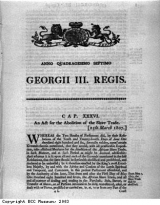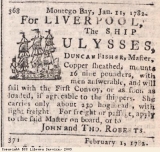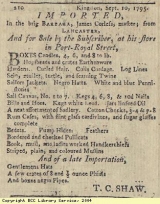Britain
Britain was a major player in the transatlantic slave trade. British ships carried 2,600,000 enslaved Africans in the 18th century to the Caribbean and the Americas. London was the leading British slaving port in the 17th century, with control over the trade until 1698. Bristol overtook London in the 1730s, and Liverpool overtook Bristol in the 1740s. These three ports are the ones commonly associated with the slave trade, but many of the smaller ports around Britain also joined in. Many of these small port towns pulled out of the transatlantic trade in slaves, sugar or tobacco leaving it to the larger ports such as Bristol and Liverpool. This was because they lacked access to the goods, cargoes, finance and experience of the larger ports. Some small port towns supported the slave trade through other means. For example, the herring fishing fleet from the town of Bridgewater in Somerset provided dried fish to the plantation slaves in the Caribbean. As elsewhere in Europe, not only port towns and cities were involved in the slave trade. Merchants from Birmingham (in the midlands) and Bath (in the south west) for example, invested in slaving voyages out of Bristol. Manufacturing towns, such as Birmingham in the midlands and Manchester in the north of England, sold products as trade goods to the slavers in the port cities. These included goods such as cotton cloth from Manchester, and guns and metal goods from Birmingham.
With acknowledgement to the work by Nigel Tattersfield on the Slave Trade from the minor ports of England.





